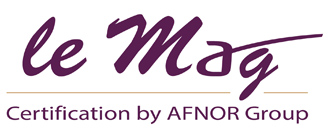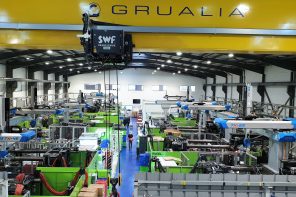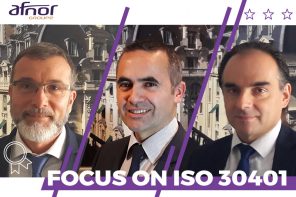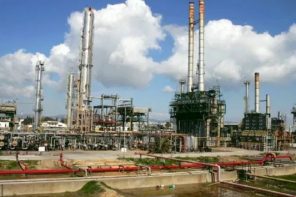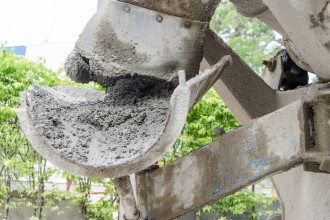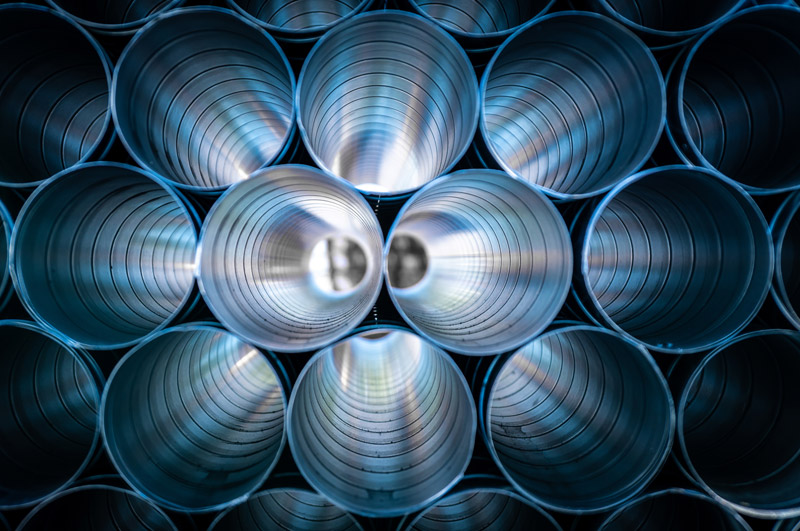
© Getty Images
It was in the Netherlands that AFNOR issued its first “ASI” certificate, guaranteeing “100% sustainable” aluminium that respects biodiversity and rules out child labour. A label synonymous with exemplarity and competitiveness for the Hydro Extruded Solutions plant located in Hoogezand.
When aluminium professionals decide to produce sustainably, from ore to profile, the result is called ASI! This consortium of manufacturers has created an eponymous standard and certification process designed for their activity: Aluminium Stewardship Initiative. And it is the plant belonging to the Norwegian group Hydro, based in Hoozegand in the north of the Netherlands, that is the first to receive this label. Each year, the site’s 155 employees produce tonnes of extruded profiles, powder coatings and even insulation and wrapping lines – elements of all shapes and sizes which are then found in our cars, our computers and our houses.
Already ISO 14001 certified, the site wanted to go a step further in its environmental approach. “Our impacts are not limited to the plant. The mines that supply us with ore and all the steps required before its arrival in the Netherlands must also be considered. ASI allows us to trace the impact of our parts throughout the aluminium value chain,” explains Jean-Marc Moulin, Director of Sustainable Development. In July 2018, the company’s management took the plunge and asked GUTcert, a German subsidiary of the AFNOR Group, for an audit.
ASI certification: traceability, sustainability, credibility
![]()
The company raced to meet the requirements of this certificate, which involve respect for biodiversity and communities, good governance, and more. And opening the plant’s doors: it is not only about raising awareness among in-house teams but also among all suppliers and stakeholders on often sensitive subjects such as child labour.
It is a project that requires solid governance throughout the chain. A strengthened management system guarantees the total traceability of the aluminium, one step after another. Communication played a key role with the creation of fact sheets, the introduction of information workshops and the sharing of documents. And in the end, GUTcert granted the certificate in November 2018.
Hydro’s management intends to put this label on a long-term footing all while continuing to improve. “End consumers demand sustainable products. Our clients – car manufacturers, for example – need aluminium parts that meet these criteria. Faced with societal pressure, it might be impossible to find opportunities for our products in the future without this label,” explains Jean-Marc Moulin.
“A two-step process”
Three questions for… Nicolas Fouquet, Project Manager at GUTcert, German subsidiary of the AFNOR Group.
What is the ASI?
 Created in 2012, the Aluminium Stewardship Initiative (ASI) groups together industrial players from the aluminium sector who share the same desire to develop a value chain that is as sustainable as possible for this metal. It is about taking a similar approach to those in the wood and coffee sectors, for example. The goal is to simplify the task of the different stakeholders by developing a standard combining elements from many other voluntary standards: ISO 14001, ISO 37001, ISO 45001 and even SA 8000. Companies must first join the initiative before obtaining the certification. The company then has two years to obtain the label, via an audit of at least one of its sites.
Created in 2012, the Aluminium Stewardship Initiative (ASI) groups together industrial players from the aluminium sector who share the same desire to develop a value chain that is as sustainable as possible for this metal. It is about taking a similar approach to those in the wood and coffee sectors, for example. The goal is to simplify the task of the different stakeholders by developing a standard combining elements from many other voluntary standards: ISO 14001, ISO 37001, ISO 45001 and even SA 8000. Companies must first join the initiative before obtaining the certification. The company then has two years to obtain the label, via an audit of at least one of its sites.
What are the requirements?
They are varied and concern the entire chain, from extraction of the raw material in the mines to its transformation to usable parts. For example, the company must make sure that none of its subcontractors use child labour, a practice that is still common in countries where deposits are located. But the criteria also concern waste management on processing sites! This is a real 360° view of the value chain.
How is this certificate strategic?
It responds to significant demand from aluminium manufacturers who are themselves subject to expectations from consumers looking for more responsible products. This is the case with BMW, for example, which is committed to producing cars made from sustainable aluminium. The ASI certificate allows tracking from the mine to the delivered vehicle! This provides real added value and a competitive advantage.
